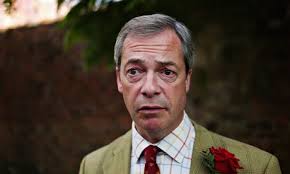The Newark By-election
We were promised a political earthquake. The last time Newark saw one of any great measure was in the 12th century, when nearby Lincoln Cathedral lost both of its imposing spires – at that time, the tallest man-made objects in the world.
No such political pillars crumbled last night, with the Conservatives and Labour reacting predictably to what was an uncertain night for UKIP and its Malta-loving anti-Europe leader Nigel Farage MEP. In fact, the Conservatives saw their first by-election victory in 25 years, albeit with a campaign that Labour’s election chief dryly observed as having “thrown in the kitchen sink, the butler’s sink, the nanny and everything else.” So what does this mean?
Contrary to what has been reported, Labour did once hold this ‘safe Tory seat’, although with slightly different boundaries. The sadly-fated Fiona Jones came into power there in 1997 on the height of the Blair wave. Last night, Labour sank nearly 5% below their polling from the 2010 General Election. Miliband’s mind will be elsewhere in the country and he will have been happy to have seen the Conservatives and UKIP fight this one out, but there remains no break-through for him outside of the main urban centres.
Labour cannot catch the public attention – there are too many competing stories and not a clear or exciting enough narrative from either him or his Shadow Cabinet. In 1996, Blair had heavyweights such as Gordon Brown, David Blunkett, Jack Straw, Margaret Beckett and Harriet Harman waiting in the wings to take the country over. Miliband does at least still have Harriet.
For UKIP, the fact Farage himself did not enter the by-election was always telling of their hopes here. In the end, he lost 15% of the support UKIP received in the May elections but it was enough for him to make a reasonable dent in the Tory vote. Strategists will wait with interest to see whether Cameron and the other main party leaders try to isolate Farage as a political curiosity or whether they bring him onto their platform as a way of publicly smoking him out. If they do that, they may accidentally give him oxygen, but they would at the very least end Farage’s public image as ‘not one of them’.
By definition, he will be another Westminster suit in the eyes of the punters. At the same time, the public will finally hear his views on Real General Election issues such as the NHS, education, policing and so-on. The British public have until now taken a dim view of extremist politicians at General Elections and the British media continue to build people up only to decimate them at a later stage. These two political planets are likely to align around May 2015.
Last night remains an unmitigated disaster for the Liberal Democrats. Those kitchen sinks will be piling back into Nick Clegg’s constituency at the General Election and he will be at serious risk of losing his seat. If Vince survives, then he may yet have his moment, despite last week’s botched coup.
For Cameron, leave the intricate maths aside about what all this means if the General Election is tomorrow (it never computes) and what you have is a winner. Is he facing a serious challenge from a renewed and populist Labour Party? Not yet. Is Farage causing the foundations of the Tory party to crumble – not yet. At the end of the day, this was a serious test and the Tories won it. Lincoln Cathedral still stands and at this rate, so will Cameron after the next election.
Find Out More
-
Achieving Outsized Impact by Building Stronger Country Reputation
February 18, 2025



